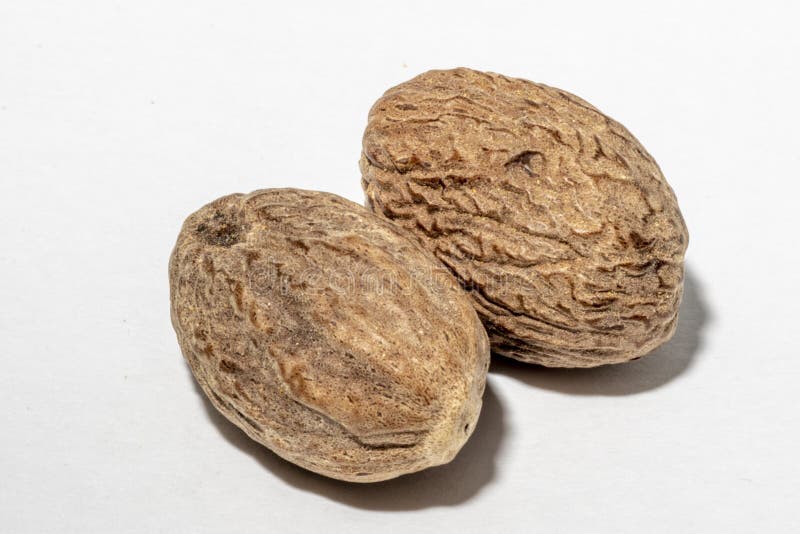Nutmeg is a popular spice used in many cuisines around the world, but what spice is similar to nutmeg? If you're looking for alternatives that provide a similar flavor profile, this article will guide you through the best substitutes available. Whether you're out of nutmeg or simply want to experiment with new flavors, understanding the alternatives can enhance your cooking experience.
Nutmeg's warm, slightly sweet, and aromatic taste makes it a favorite in both sweet and savory dishes. However, its unique flavor can sometimes be hard to replicate. Fortunately, there are several spices that offer comparable taste profiles, allowing you to achieve similar results in your recipes.
In this article, we will explore various spices that are similar to nutmeg, discuss their characteristics, and provide tips on how to use them effectively. By the end, you'll have a better understanding of the best nutmeg substitutes and how to incorporate them into your cooking.
Read also:P Diddy Liat Exploring The Iconic Figure In Music And Entertainment
Table of Contents
- What Makes Nutmeg Unique?
- Mace: The Closest Nutmeg Cousin
- Cinnamon: A Warm and Sweet Alternative
- Allspice: A Versatile Substitute
- Cloves: A Strong and Aromatic Option
- Ginger: Adding Zest and Warmth
- Cardamom: A Fragrant Replacement
- Star Anise: A Unique Flavor Match
- Combining Spices for Optimal Flavor
- Tips for Using Nutmeg Substitutes
What Makes Nutmeg Unique?
Nutmeg is derived from the seed of the Myristica fragrans tree, native to the Banda Islands in Indonesia. Its distinct flavor is often described as warm, slightly sweet, and nutty, making it a staple in both baking and savory dishes. The spice is also known for its aromatic qualities, which add depth to a variety of recipes.
While nutmeg is versatile, its strong flavor means that it should be used sparingly. Overuse can overpower other ingredients, so finding the right balance is key. This is where substitutes come in handy, allowing you to achieve similar results without compromising the overall taste of your dish.
Understanding the characteristics of nutmeg will help you identify the best substitutes. For example, if you're looking for a spice with a similar warmth and sweetness, you might consider options like cinnamon or allspice. On the other hand, if you're seeking a more aromatic substitute, star anise or cardamom could be better choices.
Mace: The Closest Nutmeg Cousin
Why Choose Mace?
Mace is derived from the outer covering of the nutmeg seed, making it a natural and closely related substitute. Its flavor profile is similar to nutmeg, with a slightly sweeter and more delicate taste. Mace is often used in both sweet and savory dishes, making it a versatile option for recipes that call for nutmeg.
- Mace has a warm, slightly sweet flavor that complements many dishes.
- It can be used in equal amounts as a substitute for nutmeg.
- Mace is particularly effective in baked goods, custards, and sauces.
While mace is a great substitute, it's important to note that its flavor can vary depending on the source. Always choose high-quality mace to ensure the best results in your cooking.
Read also:Neil Degrasse Tyson Wife A Comprehensive Look At His Personal Life
Cinnamon: A Warm and Sweet Alternative
How Does Cinnamon Compare?
Cinnamon is another spice that shares similarities with nutmeg, particularly in terms of its warmth and sweetness. While cinnamon has a more pronounced flavor, it can still be used as a substitute in many recipes. Its ability to enhance both sweet and savory dishes makes it a popular choice among home cooks.
There are two main types of cinnamon: Ceylon and Cassia. Ceylon cinnamon is considered the "true" cinnamon and has a more delicate flavor, while Cassia cinnamon is stronger and more commonly available. Depending on your recipe, you can choose the type that best suits your needs.
- Cinnamon adds warmth and sweetness to dishes.
- It works well in baked goods, desserts, and even savory dishes like curries.
- Use cinnamon in moderation to avoid overpowering other flavors.
Allspice: A Versatile Substitute
What Makes Allspice Unique?
Allspice, despite its name, is not a blend of spices but rather a single spice derived from the dried berries of the Pimenta dioica tree. Its flavor is often described as a combination of cinnamon, nutmeg, and cloves, making it an excellent substitute for nutmeg in many recipes. Allspice is particularly effective in both sweet and savory dishes, adding depth and complexity to the overall flavor profile.
When using allspice as a substitute for nutmeg, it's important to note that its flavor is slightly stronger. Therefore, you may need to adjust the amount used to achieve the desired taste. Start with a smaller quantity and adjust as needed to ensure the best results.
- Allspice combines the flavors of cinnamon, nutmeg, and cloves.
- It works well in both sweet and savory dishes.
- Use allspice sparingly to avoid overpowering other ingredients.
Cloves: A Strong and Aromatic Option
When to Use Cloves?
Cloves are small, dried flower buds with a strong and aromatic flavor. While their taste is more intense than nutmeg, they can still be used as a substitute in certain recipes. Cloves are particularly effective in baked goods, marinades, and mulled beverages, where their strong aroma can enhance the overall flavor.
When substituting cloves for nutmeg, it's important to use them sparingly. Their intense flavor can easily overpower other ingredients, so start with a small amount and adjust as needed. Additionally, cloves work best in recipes where a strong, aromatic flavor is desired.
- Cloves have a strong and aromatic flavor.
- They work well in baked goods, marinades, and mulled beverages.
- Use cloves sparingly to avoid overpowering other flavors.
Ginger: Adding Zest and Warmth
How Does Ginger Fit In?
Ginger is a root spice known for its zesty and warming flavor. While it doesn't directly replicate the taste of nutmeg, it can add a similar warmth to dishes. Ground ginger is particularly effective as a substitute in baked goods, where its flavor can complement other ingredients and enhance the overall taste.
When using ginger as a substitute for nutmeg, it's important to consider the recipe. Ground ginger works best in sweet dishes, while fresh ginger is more suitable for savory recipes. Adjust the amount used based on the desired intensity of flavor.
- Ginger adds zesty and warming flavors to dishes.
- Ground ginger works well in baked goods.
- Fresh ginger is better suited for savory recipes.
Cardamom: A Fragrant Replacement
Why Choose Cardamom?
Cardamom is a fragrant spice with a unique flavor profile that combines sweetness, warmth, and a hint of citrus. Its ability to enhance both sweet and savory dishes makes it a versatile substitute for nutmeg. Cardamom is particularly effective in baked goods, curries, and spiced teas, where its fragrant qualities can shine.
There are two main types of cardamom: green and black. Green cardamom is more commonly used in sweet dishes, while black cardamom is better suited for savory recipes. Depending on your recipe, you can choose the type that best suits your needs.
- Cardamom has a fragrant and unique flavor profile.
- It works well in baked goods, curries, and spiced teas.
- Choose the right type of cardamom based on your recipe.
Star Anise: A Unique Flavor Match
What Makes Star Anise Special?
Star anise is a star-shaped spice with a licorice-like flavor that is similar to aniseed. While its taste is distinct from nutmeg, it can still be used as a substitute in certain recipes. Star anise is particularly effective in savory dishes, where its strong aroma can enhance the overall flavor.
When using star anise as a substitute for nutmeg, it's important to use it sparingly. Its intense flavor can easily overpower other ingredients, so start with a small amount and adjust as needed. Additionally, star anise works best in recipes where a strong, aromatic flavor is desired.
- Star anise has a licorice-like flavor.
- It works well in savory dishes like soups and stews.
- Use star anise sparingly to avoid overpowering other flavors.
Combining Spices for Optimal Flavor
How to Blend Spices?
While individual spices can be used as substitutes for nutmeg, combining them can create a more complex and balanced flavor profile. For example, blending cinnamon and allspice can replicate the warmth and sweetness of nutmeg, while adding cloves can enhance the aroma. Experimenting with different combinations can help you achieve the desired taste in your recipes.
When blending spices, start with small amounts and adjust as needed. This will allow you to fine-tune the flavor and ensure the best results. Additionally, consider the recipe when choosing which spices to combine, as certain combinations may work better in sweet or savory dishes.
- Combining spices can create a more balanced flavor profile.
- Experiment with different combinations to achieve the desired taste.
- Adjust the amounts used based on the recipe and desired intensity.
Tips for Using Nutmeg Substitutes
Using substitutes for nutmeg can be a great way to enhance your cooking, but it's important to approach it with care. Here are some tips to help you get the best results:
- Start Small: Begin with a small amount of the substitute and adjust as needed to avoid overpowering other flavors.
- Consider the Recipe: Choose the substitute that best suits the type of dish you're preparing, whether it's sweet or savory.
- Experiment: Don't be afraid to try different combinations of spices to find the perfect balance for your taste.
- Quality Matters: Always choose high-quality spices to ensure the best flavor and aroma in your cooking.
By following these tips, you can successfully incorporate nutmeg substitutes into your recipes and achieve delicious results.
Kesimpulan
In conclusion, there are several spices that are similar to nutmeg and can be used as effective substitutes in your cooking. From mace, the closest cousin of nutmeg, to cinnamon, allspice, cloves, ginger, cardamom, and star anise, each offers unique qualities that can enhance your dishes. By understanding the characteristics of these spices and how they compare to nutmeg, you can confidently experiment with new flavors in your recipes.
We encourage you to try out these substitutes and share your experiences in the comments below. Your feedback can help others discover new ways to enhance their cooking. Additionally, don't forget to explore other articles on our site for more tips and tricks to elevate your culinary skills.


